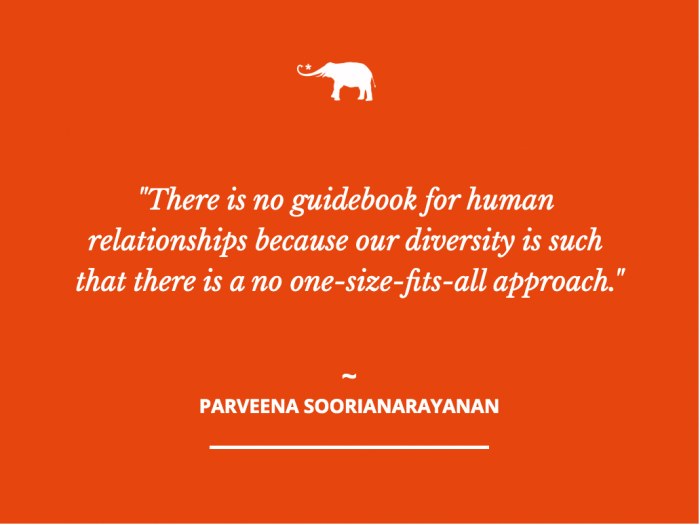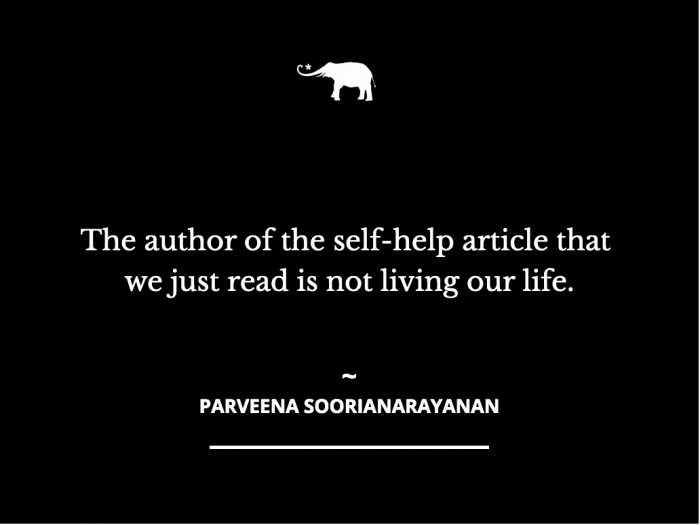Google has taken charge of most of our “lost and found” worldly problems today.
If you want a friend, there are millions to choose from over the Internet. The same practice applies to more intimate relationships. When we lose these interpersonal attachments, we crawl back to the Internet for support in hopes of distracting ourselves from grief.
Usually, this support arrives in the form of another person, and the cycle restarts. While everyone deserves to be supported adequately, depending on the magnitude of their grief, some effort is needed to understand human nature—something even the most powerful search engines are not capable of.
The concept of “knowing” someone is vastly underappreciated. Do we “know” someone or “know of” them? Every living being knows of the sun. Even animals and plants are driven by their biological tendencies to respond toward solar energy despite being intellectually disadvantaged compared to humans. However, do they “know” the sun? Are you able to narrate the sun’s exact diameter off the tip of your tongue?
Posing this question to most humans would invite the same answer: no. The excuse for their lack of knowledge in this regard would be attributed to “not googling this prior to being asked this question.” It is highly encouraged to increase your knowledge in areas that challenge your thinking. For instance, it would be good to know what the sun’s diameter is, but this knowledge is on the net.
My point is, people spend time on the Internet trying to look for answers to generic situations, which should only be answered from their own understanding of someone.
For example, let us assume a close friend is ignoring you. Your first response would be dictated by your mind to blame yourself (or them) for how they could possibly do this to you. Your next response would be to seek some support—either by speaking to other friends regarding the situation or investing in self-help articles. Only then are most people able to reach a decision. Why is it that reflection is not given more emphasis in this process?
New things and experiences are always nice. People march headlong into new friendships with the perception that they have attained sufficient experience previously. They are careful not to repeat the same mistakes, which ended their previous friendships and maintain their new belief systems with current friends.
They design their new friendships in a way that prevents them from getting hurt. What they perceive to be an ideal situation with a friend is actually a ticking time bomb. It is a common mistake that is repeated every day. When the friendship takes an unfortunate turn, they visit self-help articles to find a decision.
Ideal situations concerning human nature are yet to exist. Some self-help articles will give us guidance on when we should not text someone, when to text, when to talk, when to not talk, and so on. In reality, there is no guidebook for human relationships because our diversity is such that there is no one-size-fits-all approach.
People are so focused on the outcome that there is a tendency to overlook the process. Suppose a friend is ignoring you; all you are focused on is “when will they talk to me again?” Until that outcome is achieved, you may feel restless and agitated, even pained that your own friend does not want to share their adversities with you. And even then, the outcome has to be what is acceptable for you—your friend needs to speak to you. If they continue to ignore you, you doom yourself to this cycle of misery forever.
Self-help articles and philosophies are beneficial for the convoluted mind to find a basic ground to stand on before making a big decision. They should serve to provide us with the basic understanding of human nature for people to achieve some clarity. That is the only privilege that should be given to these types of resources. Other than that, it needs to be our initiative.
The author of the self-help article that we just read is not living our life. They do not have the same friends as we do. In this regard, we have the advantage of “knowing” someone more than a stranger who only “knows of” the person who is putting us in this situation. Basing our decisions on these articles should not be our motivation to access these articles in the first place.
We all have a beautiful mind that helps us to understand when to use our judgment and when to use human altruism. In the eyes of a person viewing life as an outsider, an ideal transaction of love should be equal in all directions. Altruism would suggest that love can be given when there is an understanding of fallible human nature, accounting for acceptance for the inequality in a relationship. The laws governing hard and fast facts should be upheld, but the same methodology should not be applied in the understanding of human nature. You do not cut an apple the same way you cut glass.
Instead of focusing on what it should be, let’s focus on tranquilizing the mind’s chatter by paying attention to what it is. This is your friend, your partner, and your life. Reflect wholesomely on the situation. Chances are, we will find many articles teaching us how to do “proper” reflection, but the only proper reflection is the one that works for us.
There is no standard to compare which reflection is better, and ultimately, we are all in unanimous agreement that the best reflection is the one that gives us eternal bliss.
Our intuition should have more power in our decisions more than words on a screen.
~


 Share on bsky
Share on bsky






Read 3 comments and reply